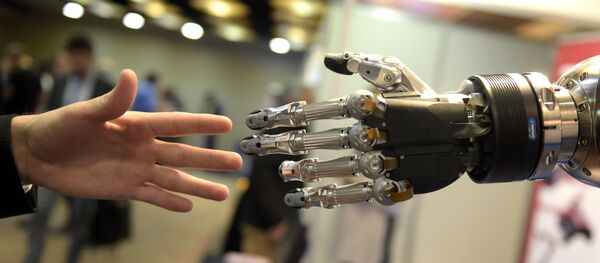Senator Maria Cantwell is seeking a Republican co-sponsor for her bill, which would stipulate the creation of an advisory board that would advise the secretary of commerce on "networked, automated, artificial intelligence applications and robotic devices."
Cantwell's bill stipulates that entities such as corporations, civil liberties groups and labor unions would send representatives to serve on the board. Representatives from the Department of Education and the National Institute of Justice (the research and development agency of the Justice Department) would serve on the board as well.
For the moment, robots serve as a job creator — but not for very much longer. The rapid advancement of AI technology has outpaced the law, with virtually nothing in terms of US federal regulation.
In 2016, the White House commissioned a report on the economic impact of artificial intelligence while the Senate Subcommittee on Space, Science, and Competitiveness conducted a hearing on how AI will impact policy and commerce. Since autumn 2016, the issue has fallen to the backburner.
There is a good deal of controversy over whether machines will one day take our jobs. Jonathan Grudin, principal researcher for AI-researching tech titan Microsoft, said in 2014 that "Technology will continue to disrupt jobs, but more jobs seem likely to be created."
That same year, The Economist digital editor Tom Standage wrote that "Previous technological revolutions happened much more slowly, so people had longer to retrain, and [also] moved people from one kind of unskilled work to another. Robots and AI threaten to make even some kinds of skilled work obsolete."
Commerce Secretary Wilbur Ross, a billionaire who specializes in buying and restructuring distressed businesses, said that he was "not in favor of trying to hold back technological advance" during a March appearance on CNBC. "We need technological advance. And if we don't employ robots, the Chinese will, the Vietnamese will, the Europeans will, the Japanese will. Everyone will."
"The right solution is to properly equip the American workforce, not to try to hold back technology," Ross said.




